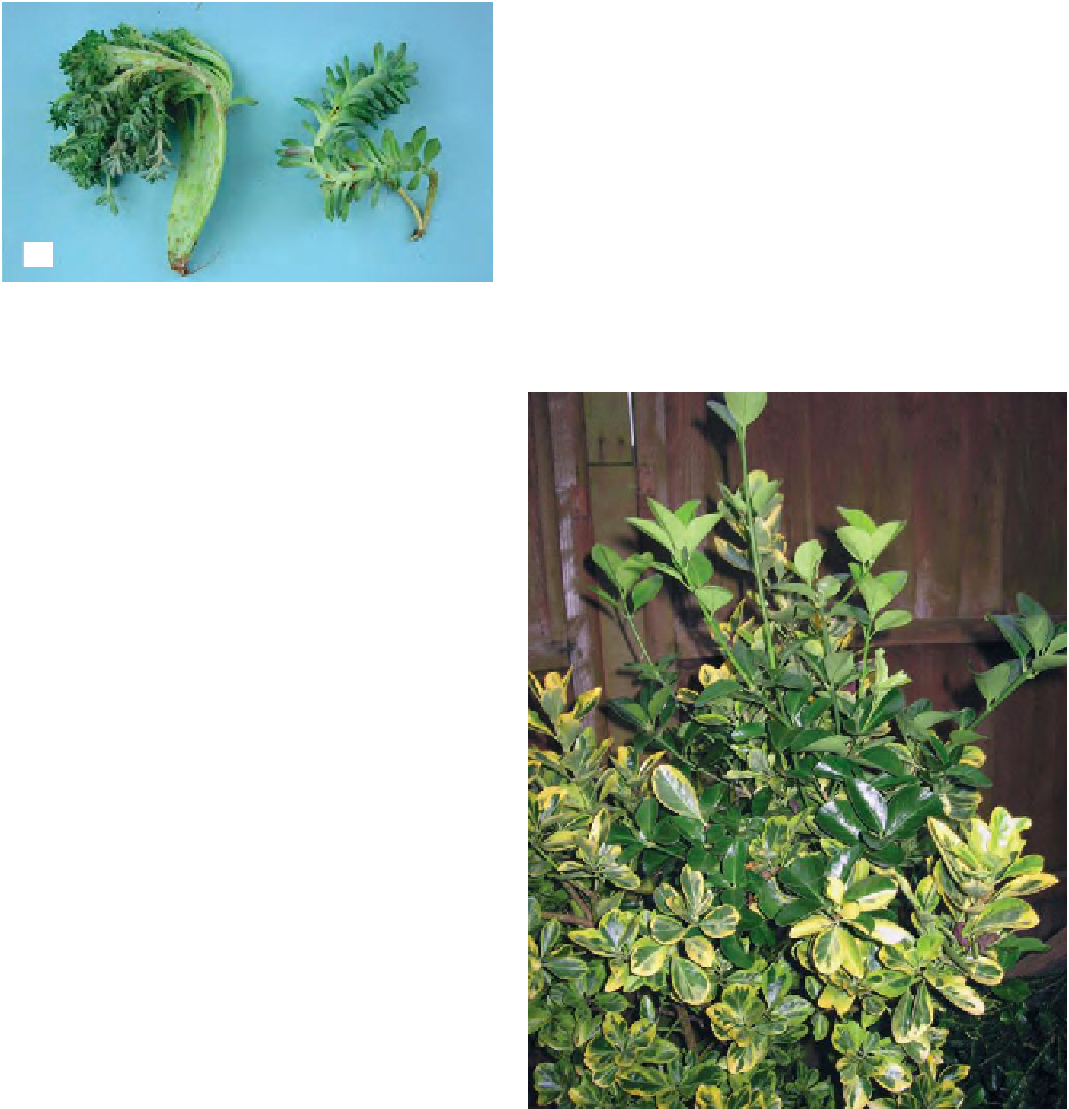Agriculture Reference
In-Depth Information
(a)
(b)
Figure 19.31
(a) Fasciation on
Sedum
species - note the fl attened stem in the affected (lower) plant; (b)
fasciated fl ower
2 mm. Cultivars such as 'Bramley's Seedling' and
'Egremont Russet' are most susceptible. Young
overbearing trees show the worst effects. The
disorder is thought to be caused by low boron and
calcium levels in the fruit, influenced by irregular
water supply in the tree. Five recommendations
are given to help prevent this problem: ensure a
steady water supply to the tree during dry spells;
mulch around trees to help moisture retention;
summer prune young, vigorous trees, especially
when they are holding too many fruit; use occasional
foliar sprays of calcium nitrate plus detergent in the
evening during summer; drench the soil with a dilute
borax solution at the rate of about 15 g of borax per
10 square metres to the soil.
Excess fertilizer
When soluble fertilizers are present at too high levels,
roots are scorched and are unable to provide nutrients
for the other parts of the plant, often resulting in
the death of the plant. This condition is sometimes
described as high conductivity (see osmosis p. 121).
Careful consideration of the appropriate frequency and
amounts of fertilizer will prevent this embarrassing
situation.
Fasciation
Figure 19.32
Reversion from the variegated to the
green leaf state in
Euonymus fortunei
This is a condition in which the plant stem grows
abnormally because of a disturbance in the stem
apex (see p. 82). Fasciated stems are often wider
and flatter than normal stems (see Figure 19.31). This
disturbance may be caused by aphids sucking into
the tender meristem, or by a mechanical disturbance.
Sometimes, fasciation results in an abnormal growth
of flowers around a central flower. Gardeners have
used the genetic tendency towards fasciation shown
in plants such as the fasciated willow
Salix udensa
'Sekka', and have perpetuated it as a desirable type by
means of propagation. Cockscomb (
Celosia argentea
var.
cristata
)
,
however,
is a garden annual of tropical
origin, that carries the genetic tendency to fasciation
from generation to generation through its seed.
Reversion
Many plant species have been selected and
propagated by botanists and gardeners for


